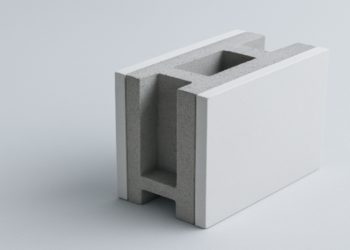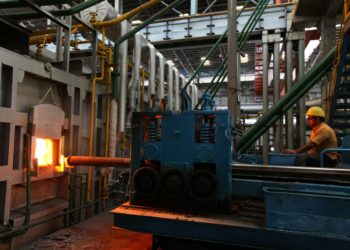The metal fabrication sector is undergoing a seismic transition as online platforms change the way organizations access and use these services. Traditionally, metal fabrication has been a labor-intensive process requiring tight collaboration between producers and clients, resulting in long lead times and complex logistics. However, with the introduction of digital platforms, the sector has become more streamlined, efficient, and accessible. This shift to online metal fabrication is more than simply a fad; it represents a significant transformation in the industrial landscape, providing opportunities for firms of all kinds to optimize their operations.
The Rise of Online Platforms in Metal Fabrication
The emergence of digital platforms in metal manufacturing is linked to a broader trend of digital transformation sweeping across industries. E-commerce, cloud computing, and Industry 4.0 technologies have combined to form a new ecosystem in which enterprises may access a variety of services from the comfort of their own offices. Online platforms have created new business models that use automation, data analytics, and on-demand production to provide metal fabrication services more efficiently and affordably.
These platforms connect businesses to a network of manufacturers who can fill orders based on specifications given online. This eliminates the need for time-consuming back-and-forth communication and enables real-time order tracking, increasing transparency and reliability.
Streamlining the Fabrication Process
One of the most significant benefits of online metal fabrication platforms is their potential to streamline the manufacturing process. Traditional metal fabrication frequently comprises several stages, including design, development, manufacturing, and quality control. Each of these stages usually necessitates coordination with various vendors, which can contribute to inefficiencies and delays. Online platforms combine these stages into a unified process, allowing businesses to handle everything from design to delivery in one location.
For example, several systems provide integrated design tools that enable users to upload CAD files directly to the system. The platform then automatically assesses the design’s manufacturability, providing feedback and suggesting improvements. This eliminates the requirement for manual review and lowers the likelihood of errors during manufacturing. Once the design is complete, the platform connects the user to a vetted network of manufacturers who can produce the part or product to the exact specifications.
Online platforms not only streamline the design and production processes, but also ease logistics. Instead of working with many vendors and tracking shipments from several locations, businesses can manage all of their orders from a single dashboard. This consolidated method saves administrative overhead and improves order monitoring and delivery times.
Democratizing Access to Metal Fabrication
Another significant advantage of online metal manufacturing platforms is the democratization of access to these services. Metal fabrication was traditionally the domain of major corporations with the capacity to form connections with manufacturers and invest in custom tooling. Small and medium-sized firms (SMEs) frequently suffer entrance barriers due to high expenses and a lack of access to specialized services.
Online platforms are breaking down these barriers by connecting SMEs with a global network of manufacturers. Smaller firms can now compete on an equal footing with larger corporations since they can now obtain the same high-quality services without requiring a significant upfront expenditure. Furthermore, many platforms include flexible pricing methods, such as pay-as-you-go or subscription-based programs, making metal fabrication more affordable for enterprises with constrained resources.
Furthermore, these platforms frequently offer a diverse selection of materials and construction methods, allowing organizations to select the optimal solution for their requirements. If a company needs sheet metal fabrication, CNC machining, or custom metal stamping, online platforms can connect them with manufacturers who specialize in these services.
Enhancing Innovation and Customization
The shift to online metal production is driving industry innovation and customization. Businesses can now experiment with new ideas and materials more easily thanks to digital platforms, which allow them to quickly iterate on prototypes and bring items to market. This is especially useful in areas like aerospace, automotive, and electronics, where innovation is essential for sustaining a competitive advantage.
Customization has emerged as a crucial distinction in modern manufacturing, with internet platforms allowing enterprises to offer bespoke products and services on a large scale. Instead of making huge quantities of identical components, manufacturers can now generate small batches of customized parts based on particular client needs. This transition to mass customization helps firms fulfill the increased demand for unique and customized products.
Furthermore, online platforms use new technologies like artificial intelligence (AI) and machine learning to improve the creation process. AI-powered design tools may automatically optimize designs for specific materials and production processes, decreasing waste and increasing productivity. Machine learning algorithms can also anticipate possible faults during production, allowing producers to address them before they become costly problems.
Sustainability and Efficiency Gains
Sustainability is becoming an increasingly significant factor in the industrial industry, and online metal fabrication platforms are assisting enterprises in minimizing their environmental impact. By improving the design and manufacturing processes, these platforms can reduce material waste and energy usage, resulting in more sustainable manufacturing practices.
For example, some platforms use algorithms to nest pieces more efficiently on metal sheets, resulting in less scrap material generated during cutting. Others provide tools for optimizing production schedules, ensuring that machines are used as efficiently as possible to save energy. Furthermore, by combining logistics and lowering the number of shipments needed, online platforms can help firms minimize their carbon impact.
Efficiency benefits are not restricted to sustainability. Online metal fabrication platforms also assist firms to shorten lead times and lower manufacturing costs, allowing them to respond more swiftly to market demand. By automating many of the manual procedures usually involved with metal manufacturing, these platforms enable producers to boost output while maintaining quality.
Challenges and Considerations
While online metal production platforms have many advantages, they are not without drawbacks. One of the primary considerations is maintaining the quality and consistency of the products delivered. Businesses rely on a network of manufacturers, thus there is a danger that quality will differ amongst suppliers. To solve this issue, many platforms have adopted stringent screening and quality control procedures to ensure that only trustworthy manufacturers are represented in their networks.
Another worry is the possibility of losing personal relationships between firms and manufacturers. In traditional metal fabrication, tight collaboration between clients and manufacturers can result in superior results because both parties have a thorough understanding of the project specifications. Online systems, while efficient, may limit the possibility of this type of collaboration. However, many platforms are addressing this by providing dedicated account managers or support teams to assist businesses in navigating the process and ensuring that their requirements are satisfied.
Conclusion
The rise of internet platforms is surely shaping the future of manufacturing, including the metal fabrication business. Online metal fabrication is transforming the way organizations access and use these services, allowing firms of all sizes to streamline operations, innovate, and compete in a quickly changing market. As digital platforms improve and include new technology, the potential for further transformation in the metal manufacturing business grows exponentially. Businesses that embrace these developments will be well-positioned for success in the future of manufacturing.












































































